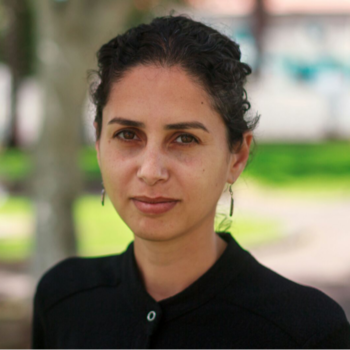Dr. Zahiye Kundos (2020)

Seminar for Semitic and Arabic Studies
Arabic Studies
EUME Research Fellow
The Loss of the Muftī: Reimagining the Afterlife of Muḥammad ‘Abduh’s Islamic Modernism in Arabic Literature
Zahiye Kundos is a research and teaching fellow at the Arab-Jewish Cultural Studies Department of Tel Aviv University. She co-organizes the Arabic Forum of fellows and students, which is supporting Middle Eastern and Palestinian scholarship in the humanities. With this same focus, she also previously co-directed the initiative “Humanities in Conflict Zones” at the Minerva Humanities Center (2016-2019). In 2018, she received her PhD from the School of Cultural Studies at Tel Aviv University on Modernist Islam and the critique of modernity. She is currently interested in rebuilding the bridges between theological studies and modern Arabic literature. In 2005, she was the Palestinian resident artist in the International Writing Program in Iowa, USA. In the academic year 2020/21, she is a EUME Fellow.
The Loss of the Muftī: Reimagining the Afterlife of Muḥammad ‘Abduh’s Islamic Modernism in Arabic Literature
What starting point can we find for a discussion of being Muslim as a moral way of life in these times when the Arabic discourse is bruised and stuttering? To begin to answer this therapeutic question, this project suggests that, instead of studying religious knowledge, (ʿUlūm Al-Dīn) and literature (Adab), separately – as their ostensible mutual estrangement in modernity has led us to do – we turn our attention to the range of experiences that become available when we consider the dynamic and symbiotic historical interrelations between them. This project is an endeavor in this direction. It attends to allocate the polemics incited in the first decades of 20th-century Egypt between religious and secular writers from the point of view of the latter as registered in their literal productions, particularly that by Taha Hussein (d. 1973) surrounding Muḥammad ‘Abduh’s death (d. 1905). Alongside voicing the tensions and uncovering the drama created in the aftermath of ‘Abduh’s absence, the project aims to show the ways Hussein and his fellow intellectuals, looked up and back to ‘Abduh with awe and sobriety and sought to extricate textures of belonging with him and his agenda of reform.